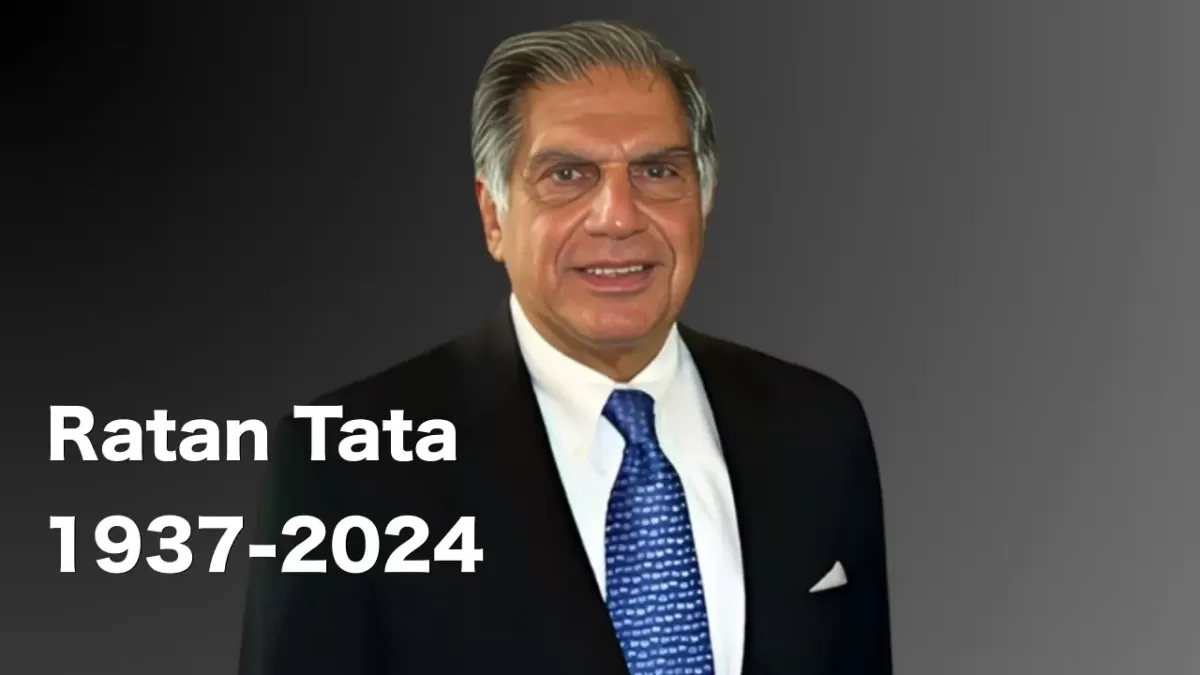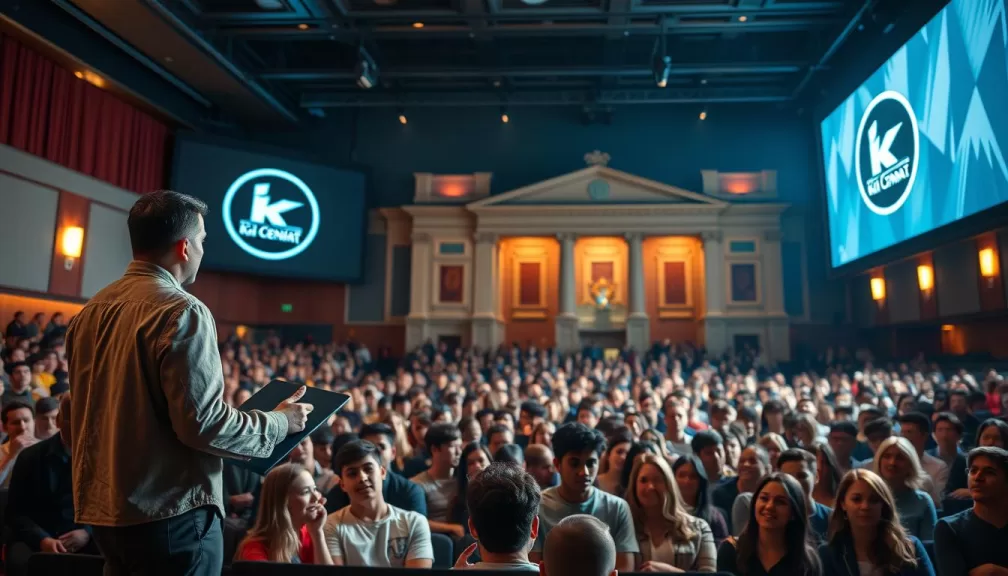Ratan Naval Tata was born on December 28, 1937, and passed away on October 10, 2024. He was a key figure in Indian business, leading Tata Sons from 1991 to 2012. During his time, the Tata Group expanded globally, making Tata a legend in Indian business.
As chairman emeritus of Tata Sons, Ratan Tata helped the group become a multinational. He worked in over 100 countries. He also gave back a lot, donating 60-65% of his income to charity through the Tata Trusts. This made him one of the biggest philanthropists globally.
Key Takeaways
- Ratan Tata served as the chairman of Tata Group for 21 years, from 1990 to 2012.
- He was a renowned philanthropist, donating around 60-65% of his income to charity.
- Tata Group expanded globally under his leadership, with over 65% of revenues coming from international operations.
- Tata made significant acquisitions, including Tetley, Jaguar Land Rover, and Corus.
- He received the prestigious Padma Bhushan and Padma Vibhushan awards for his contributions.
Early Life and Education
Ratan Tata was born in 1937 in Mumbai, India. He came from the famous Tata family, a big name in business. His father, Naval Tata, was adopted by Ratanji Tata, Jamsetji Tata’s son.
After his parents split when he was 10, Tata was raised by his grandmother, Navajbai Tata.
Tata started his education in India. But he later went abroad. He got a bachelor’s degree in architecture from Cornell University in 1959. He also took the Harvard Advanced Management Program to improve his leadership and business skills.
Education at Cornell and Harvard
Ratan Tata’s education at Cornell University and Harvard Business School was key to his success. At Cornell, he earned a degree in architecture. His time at the Harvard Advanced Management Program gave him valuable business insights.
“The best way to predict the future is to create it.”
These educational experiences helped Tata grow the Tata Group into a global giant.
Career Beginnings and Rise to Leadership
Ratan Tata started his journey with the Tata Group in 1961. He joined as an apprentice at Tata Steel. He moved up the ranks, becoming director of National Radio and Electronics (NELCO) in 1971.
In 1981, Tata became the chairman of Tata Industries. He turned the company into a strategic think tank. Under his leadership, the Tata Group’s revenues and profits soared.
From Apprentice to Director at Tata Group
Tata’s climb through the Tata Group showed his hard work and vision. He started at the bottom, working at Tata Steel. Then, he took on bigger roles, learning about the group’s businesses.
- Joined Tata Group as an apprentice at Tata Steel in 1961
- Served as director of NELCO (National Radio and Electronics) in 1971
- Appointed as chairman of Tata Industries in 1981, where he transformed the company into a strategic think tank
- Under Tata’s leadership, the Tata Group’s revenues grew over 40 times, and profits expanded more than 50 times
“Tata’s rise through the ranks of the Tata Group was a testament to his dedication and strategic vision.”
rata tata biography
Ratan Tata changed the Tata Group with his vision and smart planning. He became the chairman of Tata Sons in 1991. Under his leadership, the group grew from focusing mainly in India to becoming global.
The Tata Group’s earnings increased by over 40 times. Its profits grew more than 50 times. This made it a top business group worldwide.
Strategic Acquisitions and Business Expansions
Ratan Tata made key deals to grow the Tata Group globally. He bought Tetley, Jaguar Land Rover, and Corus Steel. These moves made the group strong in global markets and diverse.
| Acquisition | Year | Cost | Impact |
|---|---|---|---|
| Tetley | 2000 | $407 million | Established Tata Tea as a global tea player |
| Jaguar Land Rover | 2008 | $2.3 billion | Transformed Tata Motors into a major international automotive company |
| Corus Steel | 2007 | $12.9 billion | Expanded Tata Steel’s global footprint and made it one of the world’s largest steel producers |
These smart buys and growth plans made the Tata Group a global leader. It now operates in many sectors like cars, steel, chemicals, tech, and hotels.
Iconic Contributions and Innovations
Ratan Tata was a visionary leader of the Tata Group. He focused on innovation and product development. His iconic contributions were the tata nano and tata indica models. These made him a trailblazer in the Indian automotive industry.
Pioneering the Tata Nano and Tata Indica
The Tata Nano was unveiled in 2008. It was the world’s most affordable car. It had a starting price of just $2000.
This car was designed to make car ownership possible for millions of Indians. It aimed to transform the automotive landscape.
Tata also developed the Tata Indica. It was a pioneering attempt at creating a truly Indian car. The Indica showed Tata’s commitment to tata innovations and understanding the local market.
| Model | Key Features | Impact |
|---|---|---|
| Tata Nano | – Seating capacity for 5 people – Affordable starting price of $2000 |
Aimed to provide safe and accessible mobility for the Indian masses, revolutionizing the automotive industry |
| Tata Indica | – First truly Indian car developed by Tata – Showcased the company’s commitment to innovation |
A landmark achievement that demonstrated Tata’s understanding of the local market and its needs |
The tata nano and tata indica helped cement Ratan Tata’s reputation. He was a visionary leader who recognized the needs of the common people. He drove transformative tata innovations to meet them.

Philanthropy and Social Impact
Ratan Tata, a well-known Indian business leader, has made a lasting impact. He has changed lives through his work in philanthropy and social impact. As the leader of the Tata Trusts, one of India’s biggest charities, Tata has led efforts to help millions.
Tata Trusts and Charitable Initiatives
Tata believes in using business to help others. Under his leadership, the Tata Trusts have focused on education, healthcare, and helping rural areas. He has supported schools like Cornell University and helped create affordable cars like the Tata Nano.
Supporting Education, Healthcare, and Rural Development
- Tata Trusts have worked hard to improve education in India. They’ve set up schools and given scholarships and vocational training.
- In healthcare, they’ve built top-notch hospitals like the Tata Medical Center. These hospitals offer quality care at low cost.
- Tata has also worked on rural development. His programs aim to boost farming, improve sanitation, and help people earn a living.
Ratan Tata’s work has changed lives and helped the country grow. His dedication to giving back and caring for the planet inspires many.
“Business has to give back to the society from which it came.” – Ratan Tata
Awards and Recognition
Ratan Tata has made huge contributions to India’s industry and society. In 2000, he got the Padma Bhushan, India’s third-highest civilian honor. This was for his outstanding service to the nation. Then, in 2008, he received the Padma Vibhushan, India’s second-highest civilian honor, for his exceptional service.
His leadership and initiatives have earned him many honors. He has received honorary doctorates from top universities like the London School of Economics and the Indian Institutes of Technology. These honors show the respect and admiration he has earned in India.
| Award | Year |
|---|---|
| Padma Bhushan | 2000 |
| Padma Vibhushan | 2008 |
| Honorary Knight Grand Cross of the Order of the British Empire (GBE) | 2014 |
Tata’s legacy of excellence and his dedication to nation-building have made him a true icon in India. The many awards he has received show his remarkable achievements and the big impact he has had on the country.

“Ratan Tata’s contributions to the industry and society have been truly exemplary, making him a revered figure in India. The prestigious awards he has received are a fitting acknowledgment of his transformative vision and tireless efforts to build a better future for all.”
Personal Life and Interests
Love for Dogs and Animal Welfare
Ratan Tata was known for his love of dogs. He cared for stray dogs at the Tata Sons headquarters in Bombay House. He even helped his assistant, Shantanu Naidu, with his startup Motopaws, which made reflective collars for street dogs.
Tata loved German Shepherds, with pets like Tito and Tango being close to him. He stepped down as chairman to make way for a new generation. Yet, his love for animals never wavered.
His dedication to animal welfare went beyond his pets. He built a special place for stray dogs at the Tata Group headquarters in Mumbai. This showed his belief that businesses should help society and the environment, not just make money.
“Ratan Tata’s love for dogs was a testament to his compassionate nature and his belief that businesses should serve a greater purpose beyond just profit.”
Ratan Tata inspired others with his actions and advocacy. He showed how business leaders can positively impact animals and communities.
Controversies and Challenges
Ratan Tata’s career was marked by both success and controversy. His retirement in 2012 led to a leadership change drama. The removal and then return of Cyrus Mistry as his successor got a lot of media attention. Yet, Tata handled these issues with grace and a strong commitment to the Tata Group’s values.
One major tata group controversy was the criticism Tata faced when he became Chairman in 1991. People questioned his appointment, calling it nepotistic and saying he was the wrong choice. This made his early days as leader tough.
Ratan Tata challenges also included managing the Tata Group’s diverse operations. With over 100 companies in various fields, balancing growth and values was a big task. Tata worked hard to keep the group’s mission and values at the forefront.
Tata’s plan to expand the group by buying global brands faced hurdles. The Tata Nano, aimed to be the cheapest car, had production delays and safety issues. It also didn’t sell well in the market.
During his time, Tata guided the Tata Group through tough economic times. He focused on ethics and good governance, even if it meant less profit. This showed the Tata Group’s commitment to doing business the right way.
Despite the obstacles, Ratan Tata’s leadership has made a lasting impact on India’s industry. His dedication to the Tata Group’s values and his ability to lead through tough times have solidified his status as a business legend.
“Retirement isn’t about leisure activities but about continuing to make a positive impact.”
– Ratan Tata
Legacy and Impact
Ratan Tata’s legacy goes beyond the Tata Group’s growth and global reach. He is seen as a visionary leader. He shaped the Indian industrial landscape and made the Tata Group a symbol of trust and respect.
Shaping the Indian Industrial Landscape
During Ratan Tata’s time, the Tata Group’s revenue hit over $100 billion by 2011. The group made key acquisitions like Tetley Tea and Corus Steel. It also bought Jaguar and Land Rover from Ford for $2.3 billion in 2008.
Ratan Tata’s impact went beyond business. He gave ₹500 crore to help during the Covid-19 pandemic. He also donated $50 million to Harvard Business School. His charity work, through the Tata Trusts, focused on education, healthcare, and rural development.
Tata also supported India’s startup scene. He backed over 50 startups, including Paytm and Ola Electric. This showed his dedication to innovation and entrepreneurship in India.
“Ratan Tata’s vision and leadership have left an indelible mark on the Indian industrial landscape, transforming the Tata Group into a global powerhouse while championing social responsibility and innovation.”
Ratan Tata passed away in 2024 at 86. His legacy still inspires the Indian business world. The Tata Group’s success, his charity work, and startup support make him one of India’s most respected industrialists.
Conclusion
Ratan Tata’s journey from apprentice to Tata Group chairman is inspiring. It shows his business skills, leadership, and dedication to values. He made the Tata Group global, keeping its roots strong.
His work in giving back and helping others has made him a respected leader in India. His efforts will keep shaping India’s industry for years. The Tata Group will keep growing, thanks to his values and commitment to helping others.
Ratan Tata’s time leading the Tata Group is ending, but his legacy lives on. He is a role model for future business leaders. The Tata Group’s success and its values will always remember his impact.





